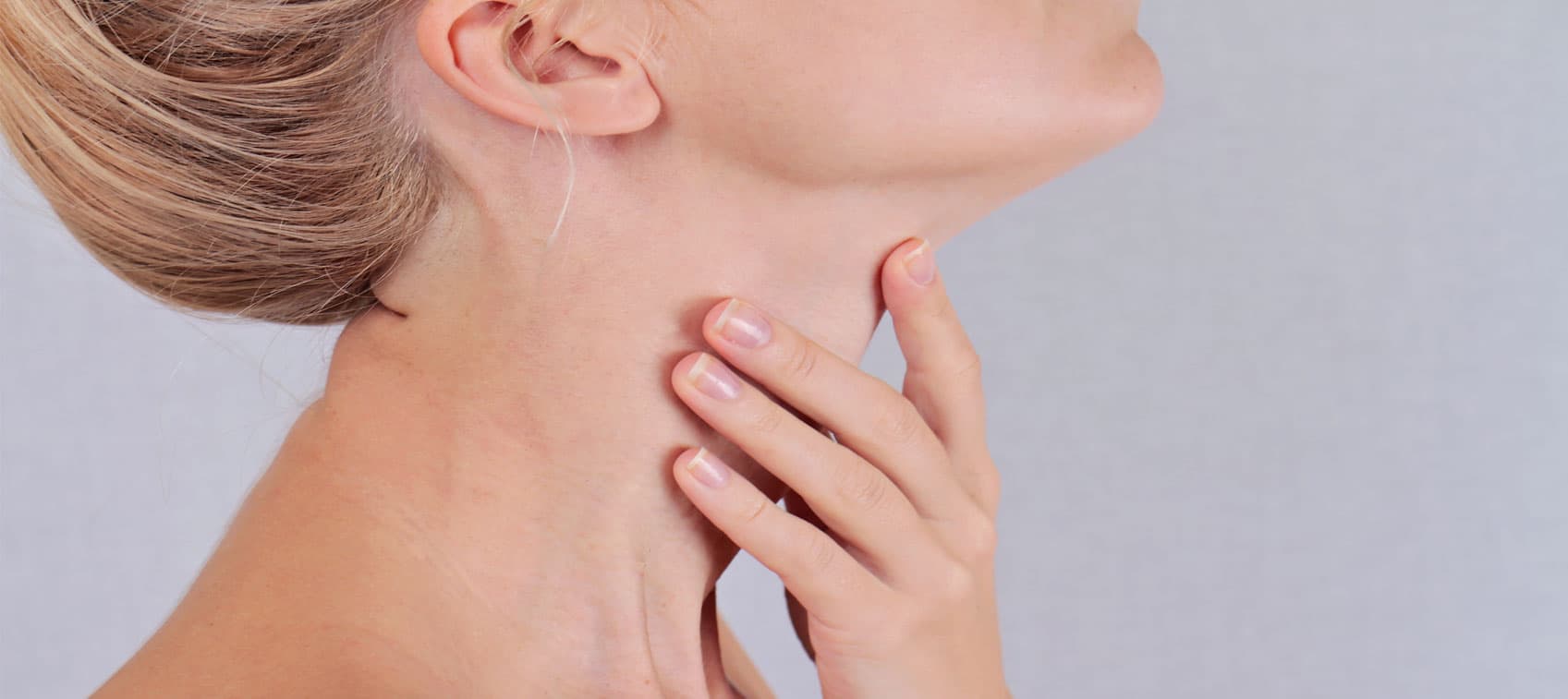
It is estimated that 20 million Americans have some form of thyroid disease. Even worse, up to 60 percent of them are unaware of their condition.
Hypothyroidism (underactive thyroid) can have widespread effects on your health and well-being. Some of the more common effects of an underproducing thyroid gland include:
- Increased risk of infection: Though rarely thought of as part of the immune system, the thyroid gland plays a crucial role in maintaining the body’s defenses. Hormones produced by the thyroid help regulate the metabolic rate within each cell and directly influence over 100 different cellular enzymes. With hypothyroidism, individuals routinely become more susceptible to infections, especially those of the respiratory and urinary tracts.
- Depression and mental confusion: Depression is one of the most common symptoms of hypothyroidism. After checking for and treating an underactive thyroid, most individuals find that depression and “brain fog” seem to clear away. They also find that they have more energy and less fatigue.
- Sexual problems: Normal sexual function requires normal thyroid function. In men, too little thyroid hormone depresses libido, while too much causes impotence. In women, too little thyroid hormone lowers libido and results in irregular periods with excessive bleeding (and, in extreme cases, miscarriages). Too much hormone release can reduce menstrual bleeding and even stop the menstrual cycle.
- Poor circulation: Circulation problems cause some of the less dramatic complaints of hypothyroid sufferers, including dry, flaky, or cracked skin and chronically cold hands and feet. In cases of hypothyroidism, the skin may receive as little as 20–40 percent of its normal blood supply. This shortfall interferes with the body’s ability to warm the extremities. It also impedes the delivery of various essential fatty acids and nutrients, which are necessary for keeping the skin soft, supple, and healthy.
Additional symptoms of hypothyroidism include:
- Decreased heart rate and cardiac output
- Increased weight (especially in midsection)
- Pain where the ribs meet the sternum
- Morning headaches and dizziness
- Loss of hair, especially the outer third of eyebrows
- Constipation
- Ringing in the ears
- Allergies
- A frog-like husky voice
- Muscular sluggishness and weakness
What Causes Hypothyroidism?
There are several things that can cause hypothyroidism. Four common causes are:
- Iodine deficiency. Iodine is one of the essential components of thyroid hormones, and a lack of iodine in the diet can have a significant impact on thyroid function. Plant foods can be excellent sources of iodine, but unfortunately the soil in which they are grown is so depleted of nutrients these days. Seafood, kelp, and seaweed products are good sources of iodine, and iodized salt can also help. (Note that sea salt is NOT a good source of iodine.) To find out if you have an iodine deficiency, your doctor can order blood work, but a more economical option is to perform an at-home skin test (also sometimes called a “patch test”). To conduct this test, before bed, use tincture of iodine (the orange, antiseptic variety) to paint a 3-inch square patch on the inside of your forearm, the inside of a thigh, or your abdomen. The next morning, inspect the painted area. If all the color remains, then your iodine level is adequate. If all the color is gone, then you definitely have an iodine deficiency. Varying degrees of color loss correspond to your degree of iodine deficiency.
- Selenium deficiency. As with iodine, our soils have become deficient in the trace mineral selenium. In the last few years, researchers have found that certain selenium-containing enzymes are responsible for the conversion of thyroid hormone T4 to T3. The thyroid produces several hormones and must produce them in a somewhat balanced ratio. Without enough selenium, this balancing process is hindered. Supplementing with selenium can be helpful in this regard.
- Zinc deficiency. Adequate levels of zinc are required for proper thyroid hormone metabolism. Most laboratory tests for zinc deficiency are not very reliable. A simple alternative is to try the zinc taste test: Dissolve 1 gram of zinc sulfate in 1 liter of distilled water. Take a sip. If you immediately detect a strong, unpleasant taste, you probably have adequate zinc reserves. However, if you taste nothing and after a few minutes experience a dry, furry sensation in your mouth, chances are good that you have a zinc deficiency. Recommended supplement dosages in this case generally range from 30 to 50 mg of zinc (elemental) per day. Keep in mind, it may take months for oral zinc supplementation to have an effect on a chronic thyroid problem.
- Estrogen-like compound pollution. Another factor contributing to high rates of hypothyroidism is the introduction of estrogen-like compounds into our environment. These compounds make their way into the body through respiration, ingestion of contaminated food, and skin contact. Once in the body, they block thyroid hormone production and contribute to hypothyroidism. Examples of these compounds include such environmental pollutants as PCBs, dioxins, and pesticides such as lindane or dieldrin.
How Do You Test for Hypothyroidism?
If you suspect a thyroid problem, simple blood tests done by a lab can help determine if your hormone levels are too low (or too high). You can also test for hypothyroidism at home using a simple and accurate method discovered by Dr. Broda Barnes, called the Barnes basal temperature test.
- Place a digital thermometer beside your bed before going to sleep. Immediately upon waking the next morning, place the thermometer in your armpit for 10 minutes. Do NOT get out of bed; relax and remain still.
- Record the temperature.
Men, perimenopausal women, and girls pre-puberty can take their temperatures on any day of the month. Women in their menstrual years get the most accurate reading on the second or third day after menstrual flow starts.
Temperatures between 97.2–98.2 degrees indicate normal thyroid function. Below 97.2 degrees usually indicates a sluggish thyroid or hypothyroidism. Above 98.2 degrees usually indicates an overactive thyroid or hyperthyroidism.
Treating Hypothyroidism
If you have hypothyroidism, you can balance it naturally by using products called glandulars (extracts of actual animal glands, such as the thyroid). Thyroid glandulars are available from several sources, but in my opinion the best is called Thytrophin by Standard Process. Patients start with three tablets a day chewed between meals on an empty stomach.
Even more dramatic results occur when one drop daily of Iosol is also taken. Iosol is a fantastic iodine product made and distributed by TPCS Distributors. (Do NOT use antiseptic iodine internally; the formulation is poisonous.)


